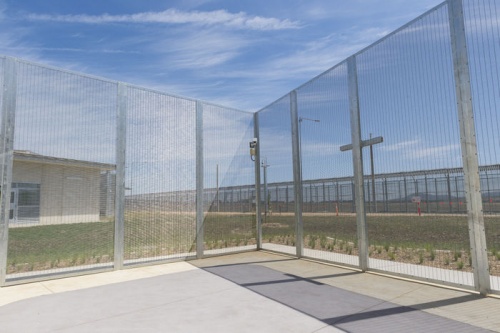No doubt the ACT government’s rhinestone cowboys will again be eagerly salivating the opportunity to… enhance the coffers of its chronically impecunious treasury at the expense of fining citizens paying homage to those who did something worthwhile for their country, says letter writer JOHN MURRAY, of Fadden.
As Anzac Day approaches and with it comes the likelihood that hundreds of visitors to the War Memorial ceremonies will be vainly seeking adequate parking spots for aged veterans and their families.

No doubt the ACT government’s rhinestone cowboys will again be eagerly salivating the opportunity to be comfortably seated behind tinted windows in their air-conditioned, camera-equipped steeds to enhance the coffers of its chronically impecunious treasury at the expense of citizens paying homage to those who did something worthwhile for their country.
It is, in effect, an exercise of what in 1990s US was referred to as anarcho-tyranny, where local governments, avoiding or unable to achieve primary law-enforcement functions aimed at curbing major crime, devised minor misdemeanours that raise revenue and create a veneer that bureaucrats perform a useful role.
By extension, otherwise innocent and law-abiding drivers are now deemed easier to penalise for minor, yet fiscally lucrative, offences than devoting personnel to pre-emptive and consequential tasks protecting persons and property from serious criminal mayhem.
John Murray, Fadden
Thank you, Lisa and the Brumbies
A quick shout out to the hospitality team of the ACT Brumbies, in particular Lisa Smith.
I bought a corporate box for the game against the arch rivals, the Waratahs, and when asked what name I would like on the box, I explained it was purchased in memory of my husband Ross, who sadly is no longer with us.
He had been a staunch Brumbies supporter and, in fact, we had a corporate box for many years. To this I thought no more.
However, at the game to my absolute surprise Lisa appeared mid-game and presented me with a signed jersey – needless to say, I shed a few tears at the generosity. Just another great thing the Brumbies team does behind the scenes. Thank you, again.
Rosie Maclaine, via email
Is ‘spaghettification’ to blame?
I recently learned a new word, from Brad Tucker, astrophysicist and cosmologist: “spaghettification”.
It describes what happens when planets and even stars get captured and torn apart by voracious black holes and only bits are spat out.
I’m wondering if this universal phenomenon might explain the apparently irrational activities of the ACT government, where good intentions are sucked into a mindless political vortex and only shreds are left?
Richard Johnston, Kingston
Did the commissioner get it wrong?
In 2021, the Commissioner for Sustainability and the Environment contracted the CSIRO and the universities of Sydney and NSW to estimate the ACT’s total carbon footprint.
They estimated the 2018 carbon footprint at 13.8 million tonnes (including 5.2 tonnes of emissions from electricity generation) or 34.7 tonnes per capita.
That was more than four times the world’s average per-capita emissions. Only two countries were higher.
The ACT government’s 100 per cent renewable electricity target reduced our annual carbon footprint by about 15 per cent from 2020.
On March 21, the commissioner released the 2023 State of the Environment Report. The report includes the earth-shattering claim that “the total carbon footprint was approximately 4.65 million tonnes carbon dioxide equivalent (CO2-e) in 2021–22”.
That figure implies that the ACT slashed its carbon footprint by two-thirds in only four years. Global warming would cease to be a threat if the rest of the world were to do that.
But the commissioner is unable to explain how that figure was calculated.
Did the ACT slash its carbon footprint, or did the commissioner make a mistake?
Leon Arundell, Downer
False stories against Israel are common
Noel Baxendell (Letters, CN April 4) claims IDF personnel have complete immunity for any actions they take in uniform. This is untrue. IDF personnel can be investigated, charged and punished, including imprisonment, for wrongdoing committed in uniform, and this happens regularly. There was a bill proposed to end such accountability, but it did not get beyond preliminary stages.
Baxendell then recounts allegations about Israeli troops massacring civilians in the Shadia Abu Ghazala school in Gaza, saying Israel never responded to the allegations.
In fact, the IDF said the claims were deceitful and lacked any truth or foundation. There was a battle between Israeli soldiers and terrorists who were hiding in the school and storing weapons there, in breach of international law.
Incidentally, the school is named after a Palestinian terrorist who was killed when a bomb she was preparing exploded, just one example of the pervasive incitement of Gaza’s children.
Sadly, false atrocity stories against Israel are common. One other recent example, publicised on Al Jazeera, was a claim Israeli soldiers were systematically raping Palestinian women. Al Jazeera was forced to withdraw the report when the so-called witness admitted she had made it all up to help the national cause.
Athol Morris, via email
Why Sam doesn’t pass the pub test
The G-G-in-waiting Sam Mostyn, although undoubtedly eminently well qualified for the role, does not pass the “pub test “; she has far too many associations with Labor, as a former staffer, a senior policy adviser to Paul Keating, and also to Labor Ministers Bob Collins and Michael Lee.
The appointment has all the characteristics of “jobs for the boys and girls”, which is practised by both major parties.
Appointments of this ilk should be made on a bi-partisan basis to have any credibility and impartiality.
Ms Mostyn should “do the right thing” and recuse herself to avoid any perceived conflict of interest.
Mario Stivala, Belconnen
Let’s stop the name calling, get on with solar
Nuclear proponents (Letters, CN April 11) persist in using misleading information in promoting their views.
First, it’s going to take a long time before our present laws banning nuclear could be changed – even if we reach universal agreement. Only then could we start assembling a workforce capable of designing and building the installations and necessary infrastructure (this was confirmed by the CEO of Alinta Energy at the National Press Club).
And where do we locate the nuclear plants? How many of the proponents would leap at the chance of having one next door, thus creating further long delays? There may be “plenty of flat, stable land” (as if that fixes everything).
A plentiful supply of water is more important and that implies building near the sea, also implying sites close to large population areas in proximity to consumers. Further, citing the present Lucas Heights reactor is, in order of relative magnitude, totally irrelevant.
Equally irrelevant to Australia are the projections of future nuclear expansions announced at COP28. These will occur (if they all get off the ground) in mainly the northern hemisphere where there is a well-established nuclear industry, unlike in Australia.
But most of all, there is the economic reality to consider. The clear evidence from the CSIRO and the Australian Energy Market Operator (AEMO) through their annual GenCost analyses is that, well into the future, nuclear for Australia will be around twice as expensive as renewables.
That’s where Australia has a clear advantage over the northern hemisphere countries – we are the sunniest continent on earth which also gives solar an economic investment advantage.
Because we are starting late, and still dragging our feet, the Alinta CEO predicted our electricity costs will continue to rise. But, as GenCost keeps saying, a large-scale switch to nuclear will cost much more.
It’s not “anti-nuclear” hysteria as claimed; it’s social, economic and engineering realities and, above all, a distinct advantage for Australia in relation to solar availability. So let’s stop the name calling and cheap political swipes and get on with what reason suggests we need to do.
Eric Hunter, Cook
Dominance can often be short on wisdom
Columnist Michael Moore is quite right. The very term “parliament” means the place where things are talked about. Of course, the body that has formed government needs to have its plans talked about.
A lot of mistakes have been “rammed through” on the numbers, and we have lived to regret the consequences. The dominance of one party has often been short on wisdom. Let’s see what happens in Tasmania.
Stewart Bath, Isabella Plains
Barr’s vision for Canberra ‘confused and blurred’
Mr Barr, reminiscent of Arthur Daley from Minder, is again spruiking light rail. His pitch, a great city needs light rail not buses.
He is diverting attention from the dodgy 2012 decision to build light rail. It was made despite advice a busway from Gungahlin to Civic would provide similar benefits to light rail and half the cost.
Great cities have citywide fast and reliable public transport; excellent hospital and education systems; high quality sport, recreation and cultural facilities; affordable housing; adequate land supply and sufficient public housing.
Great cities develop from the guidance of competent and visionary leaders who determine priorities after careful consideration of the relative merits of projects.
Unfortunately, Mr Barr’s vision is confused and blurred, and his legacy diminished, by his obsession with the unsound development of a shiny red tram.
Mike Quirk, Garran
Send in the electric buses to Molonglo
In his article “It’s hard to get right homes in the right place” (CN, April 4), Mike Quirk offers some useful suggestions, and asks many questions, about how ACT government planners should approach the issue of in-fill development in Canberra.
I don’t have Mr Quirk’s knowledge and experience of town planning, but I can cast an inquiring, scientifically-trained eye over his suggestions and conclusions.
There is no mention of problems such as loss of topsoil to make way for crowded buildings, the lack of trees and green space, the heat-island effect caused by this type of development or of the problem of vehicular access to the new crowded suburbs.
On the last issue, it has been suggested that light rail be extended into new developments, such as in Molonglo. The extension of light rail to Woden has been estimated to cost about $4 billion. Continuing this folly into Molonglo, with all the attendant engineering and construction difficulties, would likely cost even more. A fleet of 21st-century electric buses would be a small fraction of that cost.
Dr Douglas Mackenzie, Deakin
The concerned citizens are still here
Re John Lawrence’s letter (“Where have concerned citizens’ gone?”, CN March 21).
I don’t agree that Aboriginals are repressed, excluded and not all are disadvantaged. There are a lot of Aboriginals that have made a success of their lives. They are in politics, sport, medical, entertainment, broadcasters and education at universities.
Percentage wise there are more Aboriginal people in parliament than non-Aboriginals.
The concerned citizens are still here. It is of concern to most Australians of what many Aboriginals have to contend with. But the referendum was not the answer and the way it was promoted was most of the reason it was defeated.
However there is no reason things cannot change. It just needs politicians, the 3000 Aboriginal corporations and the NIAA to organise themselves to do something.
Vi Evans via email
Who can be trusted?
In a world of spin and confusion, there’s never been a more important time to support independent journalism in Canberra.
If you trust our work online and want to enforce the power of independent voices, I invite you to make a small contribution.
Every dollar of support is invested back into our journalism to help keep citynews.com.au strong and free.
Thank you,
Ian Meikle, editor





Leave a Reply